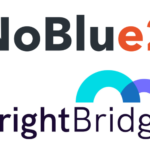At what point in the evolution of your professional services firm is it right to consider the move to professional services automation (PSA) software? Thanks to its comprehensive project management tools, implementing a PSA solution streamlines your service-based business, reducing your staff’s manual workload and delivering greater productivity and profitability.
But how do you know when the investment in new PSA software will be worth it? Here are seven signs to look for.
1. Over-Reliance on Microsoft Office for Finance and Invoicing
Creating invoices in Word and tracking them in Excel is not the most effective way that a growing professional services firm can manage its accounting processes.
If you only have a small number of clients and consultants, this may work very well for you. But as you grow, tracing the resources you have allocated across different projects and effectively managing the invoicing for them becomes unsustainable – particularly if you use a milestone or time and materials model – unless, that is, you employ a dedicated PSA solution.
A PSA solution can automatically calculate this resource allocation when the milestone is reached, generating accurate invoices and issuing them in a timely manner. This will positively enhance your finances by improving your cashflow and stemming any revenue leakage.
NetSuite also incorporates functionality for automating more complex billing – like for recurring contracts, fixed fee agreements and materials purchases. You also have the flexibility of variable billing, with options to invoice on completion, or when certain project milestones are reached.
2. Additional Offices or Overseas Expansion
As you grow, it becomes harder to centrally monitor and track the skills that consultants have within each office or territory. You may end up investing in external contractors to plug staffing gaps in order that you can ensure service continuity for your clients. This ramps up your costs in situations where you aren’t even generating any additional revenue. The net result of course is a decline in profit for that project.
Resource management functionality within NetSuite helps you to optimally allocate staff to projects so that you can minimise the time that they are non-billable as well as make sure the most suitably qualified team members are allocated to your projects. This results in improved productivity and higher per-engagement profits. Your projects run more effectively, which increases client satisfaction.
3. Using Manual Time Sheets and Expenses Forms
Billable staff are not best utilised when they must spend time manually completing time sheets and filling out expenses claims.
NetSuite’s time and expense management features easily capture detailed hours and expenses information. Your project-based staff can quickly add the relevant information wherever they are – in the office, working from home, at your client’s site or on the road.
4. Projects Not Running Effectively
When things don’t go to plan, you might suffer poor collaboration and communication, projects that overrun, unforeseen expenses and key milestones that slip.
With project software, the entire project is managed effectively. Your project teams can easily collaborate and they gain real-time oversight of the full detail. Project status details are always available and up to date, so any problems can very quickly be identified and rectified.
5. Over-Servicing Your Clients
Where tracking is ineffective – or absent – you can end up over-servicing clients or individual projects. If you quote for a project that will take 100 hours, but deliver it after 150 hours, then you’ve significantly reduced your profits.
Being able to accurately track time against projects is vital. It can clearly show the projects and clients where revenue is not matching up to what is expected. Being able to identify your most profitable clients ensures your continued success and is something that PSA software accomplishes effortlessly.
6. High Non-Billable Levels
If you can’t track your resources, you won’t be able to allocate and use them to the best effect. This could result in not appointing the right staff to projects and team members being left idle.
With PSA software, you can minimise the amount of time that billable staff are not actively working on projects. This is vital to your bottom line. Consider the scenario where your consultants are, on average, billable for 25 hours per week. Squeezing just a single hour per week out of each of them would see you achieve a revenue uplift of 4%. Who wouldn’t welcome that?
As it turns out, that’s probably a conservative goal. SPI Research found that firms that integrated their PSA and ERP systems brought in 9% more revenue per consultant – and also achieved utilisation rates that were 3% higher.
7. Lack of Insight into Project Profitability
Being able to calculate precise figures for the profitability of your projects ensures you can measure whether they were a success, as well as setting targets for improvement on similar future projects.
NetSuite’s project accounting gives comprehensive reports on project profitability, so that you can analyse in detail. The tools allow you to see reports in real-time, giving you on-demand access to the necessary intelligence data for monitoring and analysing the ongoing performance of your various projects.
The optional Advanced Revenue Management module can undertake complex project revenue calculations, automate allocations and supports various revenue scenarios, such as revenue recognition, forecasting and reclassification.
Are your firm’s systems keeping pace with your growth? Would you welcome better insights and tracking of your performance?
NetSuite’s SuiteProjects module is specifically designed for professional services firms. When integrated with your ERP, HR and CRM software, NetSuite PSA software provides comprehensive management of the full lifecycle of your firm’s projects – from the first proposal, through to the final invoice. To learn more, book an appointment now or contact us to speak to one of certified consultants.










